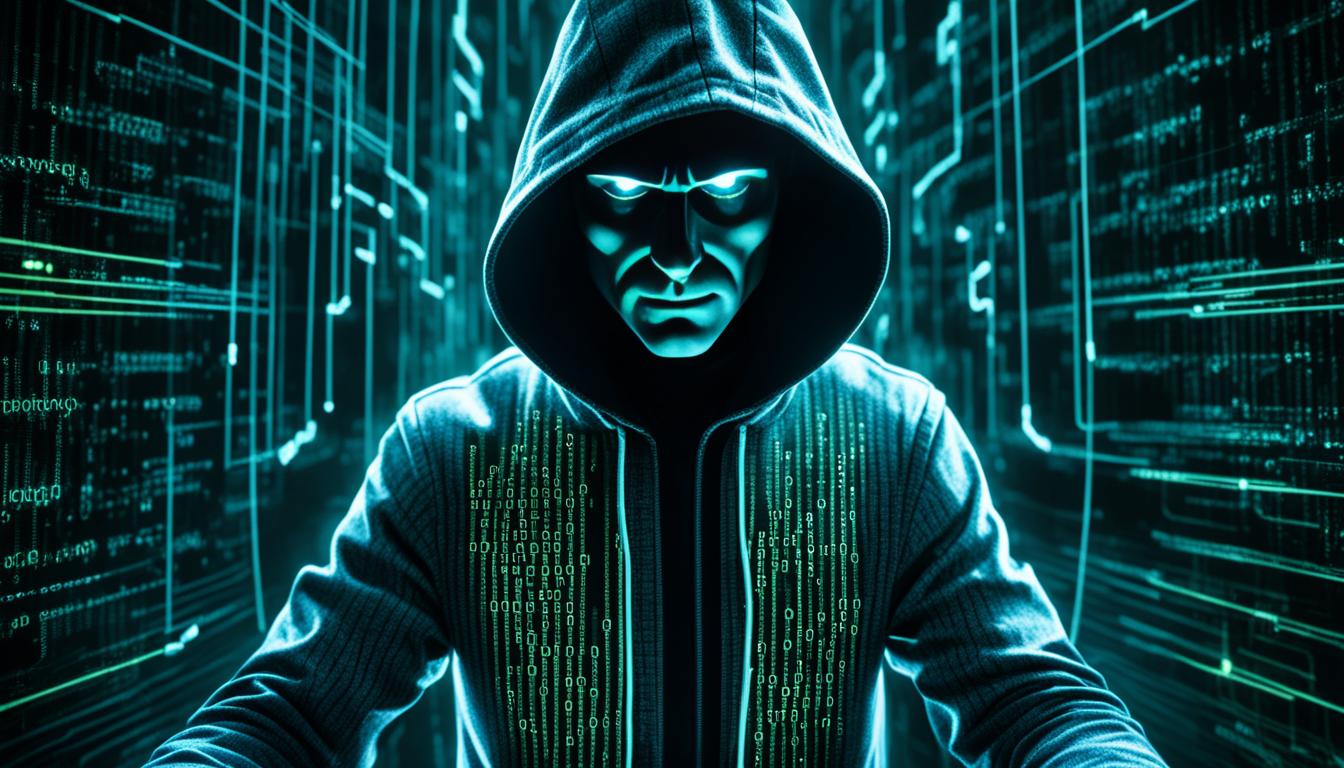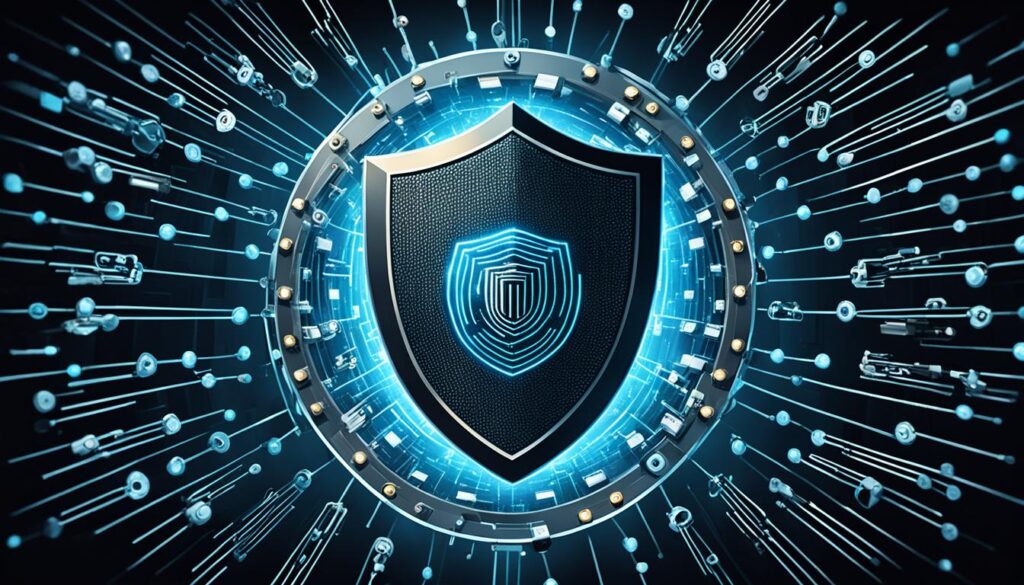Who Needs Cyber Security? Essential Protection Guide

Who Needs Cyber Security? Essential Protection Guide
Everyone should be concerned with cyber security. It’s not just for businesses or organizations. Every individual needs to think about how to keep their online information safe.
In our digital world, Who Needs Cyber Security? cyber-attacks happen constantly. Every type of organization, from big companies to small non-profits, faces dangers. Hackers can even target single users.
We’re going to talk about cyber security, looking at threats for both people and businesses. This guide will show why it’s key to set up strong online protection. Doing so helps save personal data and keeps dangers away.
Key Takeaways:
- Cyber security is crucial for everyone, not just organizations.
- The evolving cyber security threats can have severe consequences.
- Implementing effective cyber security measures is essential for safeguarding personal data.
- Protection against online threats requires a proactive approach.
- Everyone must prioritize their online security in today’s interconnected world.

Cyber Security for Different Entities
In today’s world, keeping our online information safe is more critical than ever. This is true for everyone, from small businesses to large organizations, even individuals. Each group faces its own set of cybersecurity challenges.
Read More: What is Cybersecurity? Types, Threats, and Cyber Safety Tips
Keeping your personal information safe is a big deal. For people, this means protecting things like bank details and accounts. It’s important to have strong passwords and update your software often. Adding another layer of security with two-factor authentication is a smart move as well.
Because of the amount of data they deal with, businesses have more to worry about. They need to protect their customers’ information and their intellectual property. Employee training, secure data storage, and monitoring their networks are key.
Small businesses may need help to protect themselves from cyber-attacks. They should focus on simple but effective protections, such as firewalls, and educating their staff. For them, every bit of protection counts against potential risks.
Government agencies and schools focus on keeping important data safe. They must defend against attacks that could harm everything from personal records to critical services. Tight control on who can access what and encrypted communication are vital for them.
For schools, the issue is keeping their students’ information and online learning safe. Safe use of the Internet for both kids and teachers means using filters and educating everyone about online risks.
Patient privacy is key in healthcare. The industry must protect medical records and other sensitive data from hackers. This requires measures like keeping data encrypted, controlling who can access it, and training all staff about online risks.
For banks and financial companies, keeping money and personal information safe is crucial. They face constant threats and must have complex security systems in place. Using the latest technology for secure transactions and tracking accounts in real-time is essential for this line of work.
The pandemic has highlighted the need for strong cyber security. With more people working from home, the risk of online attacks has grown. Remote workers should take extra measures, like using VPNs and staying alert for scams, to make sure their work stays safe.
Read More: Different Types of Cyber Security: A Comprehensive Guide

Benefits of CyberSecurity
Best cyber security is key in today’s digital world. It helps protect your personal and business data online, including important information and customer details.
It’s important to keep your data safe from hackers. As we see more data breaches, protecting information is crucial. Good security measures lower the chance of data theft, helping keep personal and business data safe from prying eyes.
Cyber security also helps you follow the law. Data protection laws often change, and by staying secure, businesses can comply with these laws, including laws like GDPR and HIPAA.
Another benefit is that it builds trust with customers. People want to know their information is safe, and when businesses protect data well, they show they care.
Good cyber security keeps your online business safe. A cyber attack could hurt your reputation and make you lose customers. By being secure, your online things stay safe. This means your business keeps running smoothly.
To sum up, cyber security helps in many ways. It keeps data safe, helps with laws, and makes customers trust you. It also makes sure your online business stays strong. Everyone should focus on being safe in our digital world.
Read More: Why is Cyber Security Important for Modern Business Safety?
Cyber Security Best Practices and Awareness
Strong cyber security is vital today. Both individuals and companies can safeguard themselves by using best practices and spreading awareness, which helps prevent cyber threats and improves security.
Educating Employees about Cyber Threats
Teaching staff about cyber threats is key. With training, workers learn to spot and avoid scams like phishing emails, making it less likely they will fall for these tricks.
Implementing Strong Passwords
Using tough, unique passwords makes online accounts safer. It’s a good idea to advise users to choose a mix of letters, numbers, and symbols. It’s also important to remind them to change passwords often and use a different one everywhere.
Utilizing Multi-Factor Authentication
Adding multi-factor authentication (MFA) strengthens account security. Users must prove their identity in more than one way. It adds a big layer of defense, even if a password is stolen.
Regular Software Updates
Updating software and systems is a must for good security. Updates often fix bugs and security flaws. By updating quickly, people and companies can keep cyber threats at bay.
Conducting Security Audits
It’s very important to have security audits regularly. They check whether security measures are working well and find any weak spots. After an audit, it’s easier to improve security and avoid attacks.
Staying Vigilant Against Phishing Attacks
Phishing remains a top cyber threat. It’s crucial to stay sharp and double-check emails and links. Always be careful with emails that ask for personal info. Reporting fishy emails to security teams is a smart move.
By sticking to these cyber security tips, everyone can lower their chances of being targeted. Good cyber security needs continued effort, staying alert, and taking proactive steps against new threats.
Conclusion
Today, keeping your online information safe is more important than ever. Cybersecurity is key for both people and companies because online dangers are always changing.
If you focus on cybersecurity, you keep your online life safe, your client’s trust, and your important data private. Strong cybersecurity practices are a must for both personal and company usage.
At Ark Solvers, we understand how crucial it is to protect your digital things. Our solutions are customized for you, guiding you through cyber threats and helping you prepare to fight off potential attacks.
FAQ
Who needs cyber security?
Cyber security is key for both individuals and groups. It’s for everyone using the Internet or being online. This way, they can keep their personal information and digital stuff safe from cyber dangers.
Why is cyber security important?
Cyber security guards our private information and stops unknown entries. It also shields us from online dangers like data hacks, virus attacks, and scams. Good cyber security helps keep our data and systems safe.
How does cyber security benefit businesses?
It helps firms lessen risks, keep customer data safe, and protect their image. By stopping money loss from hacks, downtime, and fines, businesses thrive. It also makes customers trust them more and keeps them ahead in the market while following the law.
How can individuals protect their data online?
To keep their data safe, people should use strong passwords and two-step verification. They should also be careful about sharing information online. It is crucial to avoid strange links that are downloaded only from trusted sites and keep devices updated.
What are the common cyber security threats?
Online threats include viruses, scams, fake emails, and tricking people online (phishing). There are also attacks that overload systems (DDoS), threats from workers within the company, and sophisticated threats (APTs). They can mess with data, harm operations, and damage finances and reputation.
What are some cyber security solutions?
To combat threats, there are antivirus programs, firewalls, and secure data backups. Also, there’s encryption, employee training, and plans to act if something goes wrong. These are part of multiple steps to keep digital spaces safe from harm.
How can organizations assess their cyber security risks?
For organizations, checking cyber risks means looking for potential dangers and weak spots. They weigh the value of their assets and figure out how likely threats are and what they mean. By doing this regularly, they can keep their guard up against evolving cyber risks.


